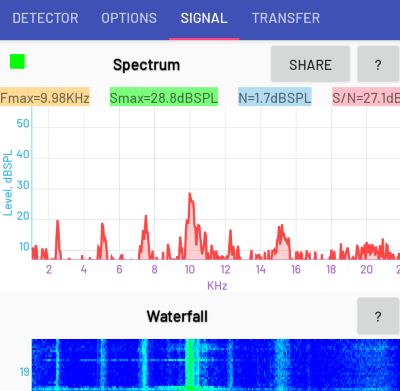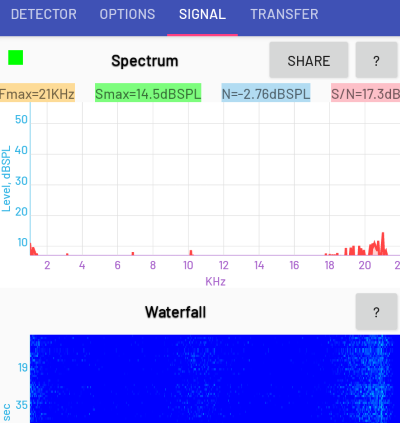Since new gas and electricity meters were installed in my house on 9 February 2022, I have had a very serious problem with tinnitus. I also have had a feeling of strong pressure on my eardrums. Let me say straight away that this is nothing to do with smart meter communications; the hub responsible for mobile and Wi-Fi signals was removed one week after the meters were installed as a final attempt by the energy company to solve the problem. Various engineers I’ve been in contact with over this matter suspect the problem is most likely to be a switched-mode power supply or capacitors associated with it. I would like to know more about how such a device upset my health to the point that I do not feel it is safe to live in my own home. The energy company have refused to carry out any further work to investigate the issue and state that their meters meet all the current standards and are therefore safe.
I did not have any problems with the traditional analogue meters previously installed. I should add that I’ve been in houses that have smart electricity meters of various types and only in one of those houses do I feel my tinnitus tone is being amplified and none result in any pressure feelings on my eardrums. The first meter, a Landis+Gyr E470 was replaced with a Kaifa MA120 five days after complaining to my energy company. The Landis+Gyr meter was unbearable to live with any longer than that. The Kaifa model has seen me leave home twice for respite despite discovering on how to dampen down the tinnitus and greatly reduce the pressure feeling on my eardrums. The Kaifa makes an awful little noise which if I could hear that while in the living room, I could understand why my ears are being irritated. The Landis+Gyr also made a similar noise but a little quieter. However, should such devices make any audible noise at all? Some people don’t have the ability to hide these away in cupboards. I can hear the Kaifa meter 2 to 3 metres away with the cupboard door open where it is installed. A short recording of the continuous noise it makes can be heard in the following mp3 file:
My tinnitus grew into a significant problem within 24 hours of the Landis+Gyr meter being installed. I’ve had tinnitus in the past and was cautious to blame the new gas and electric meters at first, but I soon noticed this was very different to previous bouts of tinnitus: I found the affect would wane when away from the house and be amplified back to ‘horribly irritating’ upon return. The pressure feeling on my eardrums 'throbbed away' as soon as I got a short distance away from my house, it too would come back very quickly upon returning inside. When the Landis+Gyr meter was shutdown for replacement, it was an hour before the Kaifa meter was switched on. That is the only time I’ve been in the house since the new meters were installed on 9 February that my ears have felt calm, albeit the tinnitus tone only very slowly fades away. Unfortunately that short period of time was to end with a shock when the Kaifa was powered on; I felt a short burst of pain in both ears making me flinch in my seat. I was not watching what the fitter was doing and had to ask him what had just happened. He stated he had just powered up the meter with the distribution board still switched off. I’m horrified that simply turning on the meter could cause me pain, not to mention the fact the tinnitus and pressure feeling came back with this new meter.
With the aid of a friend who is also has a background in electrical and electronic engineering, I made the discovery that the effects of the meter can be reduced by turning off electrical devices plugged into the mains supply and found by turning off the ring main supplying the bedroom overnight, I could achieve better sleep, albeit still not adequate. Suspicion then was that the meter was emitting something being carried around the house via the mains cabling as opposed to just emitting something from itself. I requested help from the local power distribution company who sent out an engineer to check for electromagnetic fields. No unusually strong fields were found, however the engineer said he could perceive a high pitch tone and a bit of pressure on his eardrums. So far the only other person to sense something of what I am experiencing and I at least do not feel alone any more. He asked me to try powering down electrical equipment before turning the distribution board off and we both felt a relief from the pressure as soon as I turned off the television and surround sound system. The surround sound system along with most other audio equipment are now unplugged and the sense of pressure on my eardrums is much less noticeable. The engineer mentioned that tantalum capacitors and switched-mode power supplies can be a source of noise at frequencies in the audible range if they are defective or inadequately filtered.
Unfortunately the tinnitus tone has been gaining strength recently worsening my sleep down to just 2 hours a night. Hence I have had to leave my house again for respite, immediately achieving nearly 7 hours sleep on my first night away despite the tone having hardly subsided. I have used a tone generator to match the tinnitus at 14kHz. Sound analyser applications on my smart phone don’t show anything unusual at this frequency, but there is some low frequency noise below 100Hz and high frequency noise around 20kHz. Both are at low volumes, albeit I hardly think the microphone on a smart phone can be trusted at these low and high frequencies. However, what is interesting is that noise in the 17kHz to 21kHz range is hardly present when I am in other houses with smart meters where my tinnitus is not amplified and it is present in the only other house I know where my tinnitus is amplified. It could be a red herring, but there must be strange harmonics involved one way or another.
I’ve spent a great deal of time researching the Internet trying to find out about the problems with tinnitus and smart meters. I find people reporting life affecting tinnitus within two days of having smart meters fitted and then the forum responses where they posted concentrate on the arguments about Wi-Fi and mobile phone signals, neither of which apply here and then they soon degenerate into conspiracy theories about smart meters. (I’d have been very disturbed by tinnitus for the last 20 years if I had any sensitivity to radiation from mobile phones and Wi-Fi routers.) I’ve been in touch with the British Tinnitus Association and they have confirmed my case is “not without precedent”. I’ve had an email discussion with a specialist audiologist who states that the link between electrical apparatus and tinnitus is not scientifically proven but it is known some people can be hyper-sensitive. I’ve not knowingly been sensitive to any electrical devices in the past. I've had a hearing test which proves my hearing in the normal range is very good for my age, just some mild loss in the 7kHz to 8kHz range. The tone generators I used to match my tinnitus show I can hear tones up to around 15kHz, subject to the quality of these tone generator apps, websites and speakers within my smart phone and attached to my computer.
Maybe the arguments over smart meters and health problems have been clouded by the debate on Wi-Fi and mobile phone signals rather than the quality of the electronics in these meters. The electronics engineers who have pointed out the problem is likely to be the switched-mode power supply or capacitors within the electricity meter have done so independently, based in three different countries, which proves to me there is some concern about these components which obviously are in lots more devices than just meters. There is a difference though: I have two devices which have power supplies, almost certainly switched-mode, that make audible noises, but these can be turned off and would be replaced if I suspected they were causing any health concerns. The electricity meter is not something that can be turned off and replaced by the householder, it has to be changed by the energy company and any interference with it is illegal. I’m currently left in a position where I am reporting health effects coincident with the meters being fitted, locational to my house, affected by household electrical equipment and I'm so afflicted I am renting accommodation at some expense away from home, but being told by the company they are not going to do anything about it. They asked me switch company if I wanted the meter changing again and issued me with a deadlock letter so that I could take my case to the Energy Ombudsman as the only alternative. Either takes more weeks than I would like to contemplate, I've suffered more than enough already.
As switching energy companies at the current time is very difficult and very expensive without having to make the unusual request to remove a virtually new meter, I have started a complaint with the Ombudsman and I need to supply them with as much evidence as possible to prove the electricity meter is causing my health problem. There does not appear to be anyway of enabling the meter to be replaced as a matter of urgency given all my personal evidence as described above. If anyone can provide any advice or evidence that the quality of these meters can result in problems like I am experiencing I would be very grateful indeed. If anyone is researching in this area I would be very happy to help them with my experience, I do not fancy a future where such tinnitus inducing devices are common to every home.

